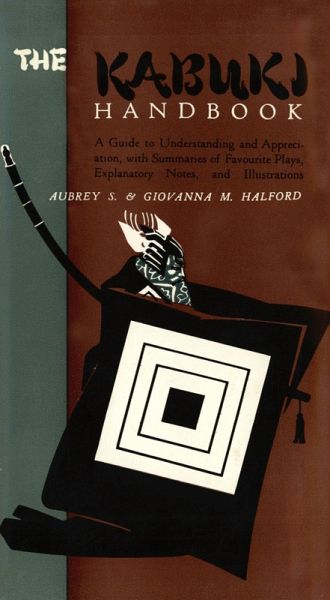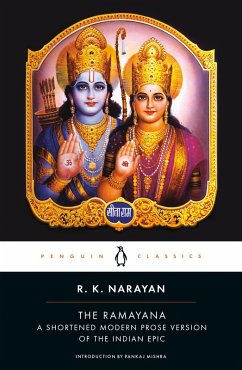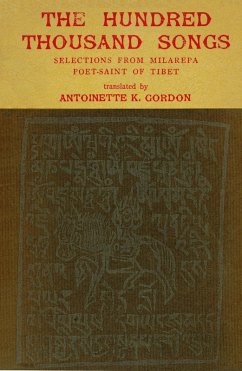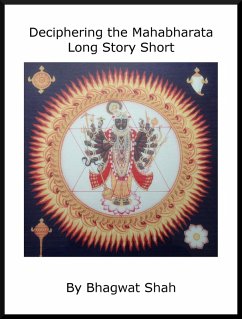
Kabuki Handbook (eBook, ePUB)
A Guide to Understanding and Appreciation

PAYBACK Punkte
2 °P sammeln!
"The Halfords' book is an achievement. For the first time ever, any Westerner who reads English can obtain a real insight into the plots and stories, the texts and characteristics of Kabuki dramas, and in terms which a Western-trained mind can readily understand. For this the entire Kabuki world must be grateful." From the Foreword by Faubion Bowers, author of Japanese Theatre and Theatre in the East Kabuki has been described as "in the main, the finest theatre art in the world," and its ever-growing popularity both in Japan and abroad bears witness to its tremendous dramatic effectiveness. T...
"The Halfords' book is an achievement. For the first time ever, any Westerner who reads English can obtain a real insight into the plots and stories, the texts and characteristics of Kabuki dramas, and in terms which a Western-trained mind can readily understand. For this the entire Kabuki world must be grateful." From the Foreword by Faubion Bowers, author of Japanese Theatre and Theatre in the East
Kabuki has been described as "in the main, the finest theatre art in the world," and its ever-growing popularity both in Japan and abroad bears witness to its tremendous dramatic effectiveness. The fact that many persons tend to regard it as mere spectacle, thus missing the greater part of its moving appeal, has been due to the lack of any key to the intricacies of its plots and its unfamiliar stage conventions. Here at last is a genuine key, one which opens wide vistas of understanding and appreciation.
Included here are lucid synopses and crystal-clear explanations of the hundred odd plays which form the backbone of the classical Kabuki repertoire and constitute over twice that many individual program items. Equally as valuable as the synopses are the informative and entertaining Notes explaining the many points that have proved perplexing to the non-Japanese spectator. Both synopses and notes are provided with a careful system of cross references and an indispensable index, all making for ready use and saving the spectator from "dwelling so much on some minor, but incomprehensible, point that the thread of the drama is lost."
Kabuki is drama drama par excellence and now, thanks to this invaluable handbook, may at last be enjoyed as such. The authors have well fulfilled their aim of allowing the playgoer to concentrate on the performance and appreciate both the Kabuki actor's amazing virtuosity and the unique art of the Kabuki theatre.
Kabuki has been described as "in the main, the finest theatre art in the world," and its ever-growing popularity both in Japan and abroad bears witness to its tremendous dramatic effectiveness. The fact that many persons tend to regard it as mere spectacle, thus missing the greater part of its moving appeal, has been due to the lack of any key to the intricacies of its plots and its unfamiliar stage conventions. Here at last is a genuine key, one which opens wide vistas of understanding and appreciation.
Included here are lucid synopses and crystal-clear explanations of the hundred odd plays which form the backbone of the classical Kabuki repertoire and constitute over twice that many individual program items. Equally as valuable as the synopses are the informative and entertaining Notes explaining the many points that have proved perplexing to the non-Japanese spectator. Both synopses and notes are provided with a careful system of cross references and an indispensable index, all making for ready use and saving the spectator from "dwelling so much on some minor, but incomprehensible, point that the thread of the drama is lost."
Kabuki is drama drama par excellence and now, thanks to this invaluable handbook, may at last be enjoyed as such. The authors have well fulfilled their aim of allowing the playgoer to concentrate on the performance and appreciate both the Kabuki actor's amazing virtuosity and the unique art of the Kabuki theatre.
Dieser Download kann aus rechtlichen Gründen nur mit Rechnungsadresse in A, D ausgeliefert werden.













